![]() — หน้าแรก — เกาะติดข่าว
— หน้าแรก — เกาะติดข่าว
ข่าวเศรษฐกิจและธุรกิจประจำสัปดาห์
-
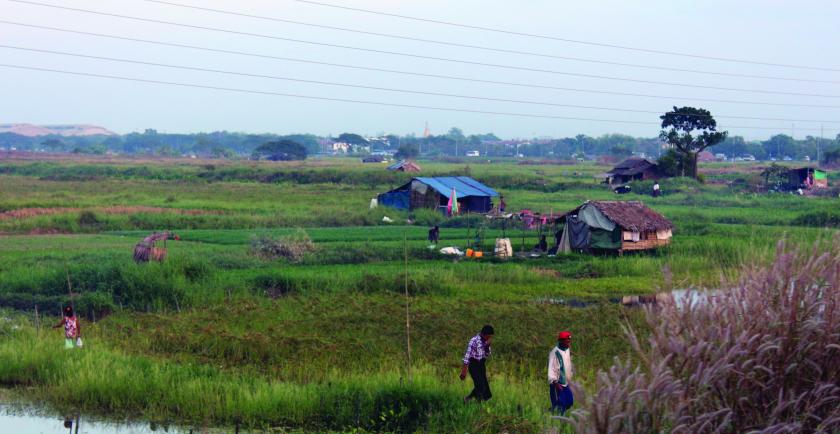
Yangon Regional Government is discussing ways to reduce land prices in order to boost foreign investment ( (Yangon Chief Minister, U Phyo Min Thein)
The Yangon Region¬al government is discussing ways to reduce land prices so not to be a barrier for foreign investment in the na¬tions commercial capital, Yangon Chief Minister, U Phyo Min Thein, said at a UMFCCI meeting on Au¬gust 28. “The price of farm land in Yangon Region has be¬come extortionate as resi¬dents and businessmen are selling property and changing land permission because of rumor-based land speculation. Entre¬preneurs with a stated in¬tention purchase land and shift their intentions im¬mediately after ink on the ownership papers is dry. This government will not stand for such manipula¬tion,” U Phyo Min Thein affirmed. Under the articles of the National Land Use Policy, the prices for land are designated by the buyer's commercial or develop¬ment purposes, re-allo¬cating land immediately after a sale is unethical and illegal. -
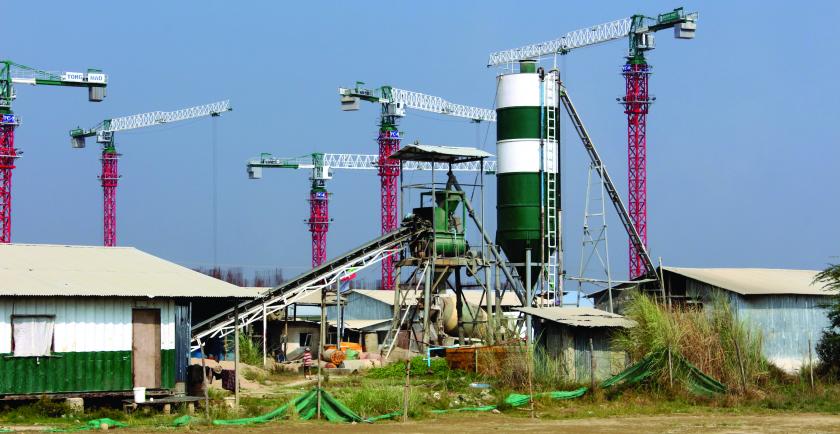
Construction and Housing Development Bank will provide construction firms with better access to loans
The Ministry of Plan¬ning and Finance through Myanmar Economic Bank will pro¬vide a line of credit to local construction en¬trepreneurs through the recently established Con¬struction and Housing Development Bank. The Union Minister for Planning and Finance, U Kyaw Win, made the announcement at UMF¬CCI meeting on August 28 in response to recent concerns that the slowed growth in property and infrastructure develop¬ments have arisen from firms inability to access loans. “Most construction firms face financial ob¬stacles posed by large up-front costs and a lack of accessible credit, thus slowing down their time¬line for development,” U Kyaw Win said. The Construction and Housing Development Bank was formed in 2013 under the Ministry of Construction to meet that expressed demand by of¬fering easy to apply for loans with low annual in¬terest rates. -
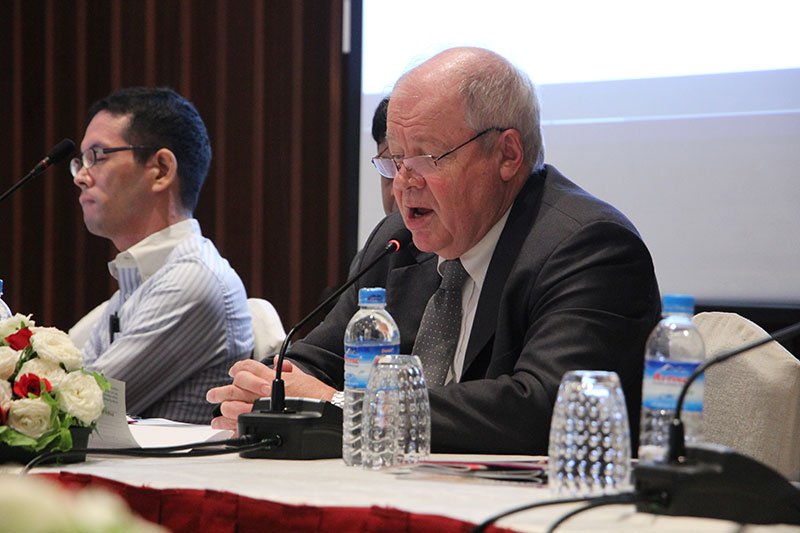
To boost trade, transport incomes and benefits from BIMSTEC, Myanmar needs customs bonding arrangements with neighboring countries
A top logistics expert has said Myanmar must work out customs bonding agreements with neighbouring countries to boost trade and transport incomes that could accrue from regional groupings like BIMSTEC. Speaking to Mizzima on the side-lines of a seminar on 'Myanmar in BIMSTEC' logistics specialist and consultant Paul Apthorp said Myanmar is strategically located between South and South-east Asia. "It is going to the biggest beneficiary of regional groups like BIMSTEC, but only if got into customs bonding agreements with India, Bangladesh, Thailand and other countries," Paul Apthorp told Mizzima in an exclusive interview. "See how trade between Thailand and China exploded through the roof after the two countries arrived at a customs bonding agreement, said Paul Apthorp, "That could happen if Myanmar worked out similar agreements with its neighbours." -
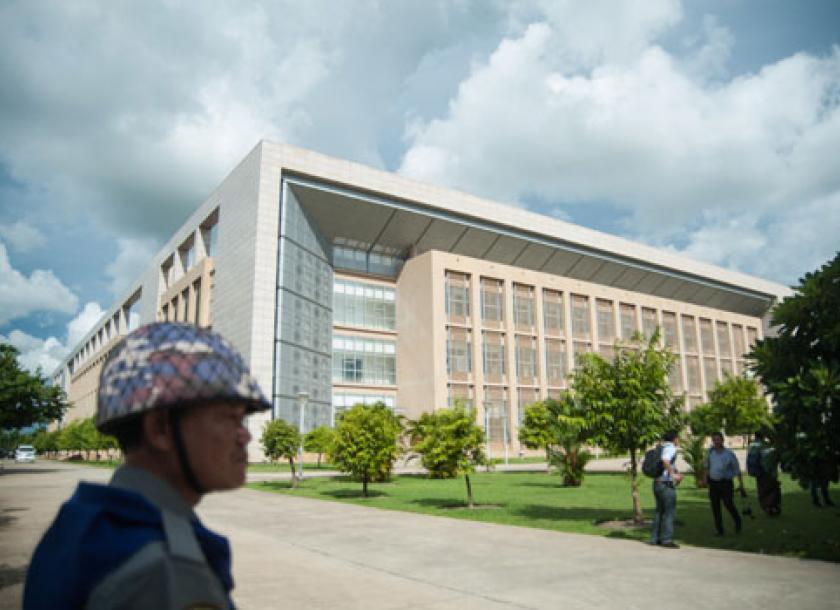
A new companies act will introduce significant changes in the legal definition of foreign companies, registration process and capital structures following discussion in Amyotha Hluttaw
The draft Companies Act, which is currently discussed by Amyotha Hluttaw, will introduce significant changes in the legal definition of foreign companies, the registration process and capital structures. Notably, foreign firms no longer need to obtain a permit to trade from the authorities and foreigners will be allowed to buy shares on the Yangon Stock Exchange for the first time. Filip Lauwerysen, executive director of the European Chamber of Commerce in Myanmar (EuroCham), has written to The Myanmar Times to detail his analysis on the significant changes entailed by the draft Companies Act, which was submitted to Amyotha Hluttaw, the upper house of the parliament, in July. The bill was drafted by the Directorate of Investment and Company Administration (DICA) with technical assistance from the Asian Development Bank (ADB). It was submitted to Pyithu Hluttaw, the lower house, in early January this year. -
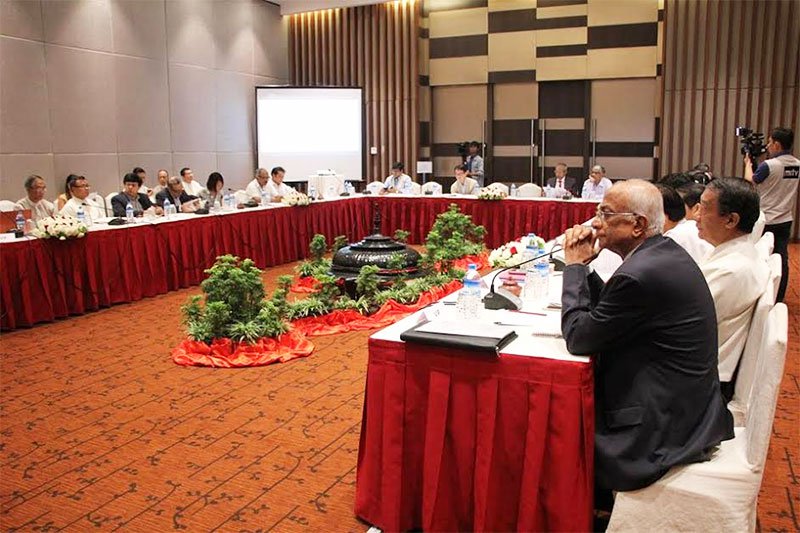
Increased connectivity and trade promoted at forum to discuss 70 years of India-Myanmar relations
At a forum held in Yangon to celebrate and discuss 70 years of India-Myanmar relations, a key message to come out being the need to substantially increase connectivity, trade and diplomatic relations between the two neighbours. Parami Roundtable and Mizzima Media Group organised the first India-Myanmar Dialogue ‘Act East Policy and India-Myanmar Relations’ at Park Royal Hotel on 2 September 2017 to commemorate the 70 years of India-Myanmar relations. The roundtable was attended by high level speakers from India and Myanmar. Mr Ken Tun, Chairman, Parami Energy Group, the main organiser and sponsor, extended the opening remarks. H.E. Mr. Vikram Misri, Indian Ambassador to Myanmar extended the special remarks. U Nay Oke, Professor of English gave the keynote address. The Book entitled “Myanmar's Integration with the World: Challenges and Policy Options”, jointly edited by Prabir De and Ajitava Raychaudhuri with contributions from several Myanmar scholars and published by Palgrave Macmillan, Singapore was also released at the roundtable. -
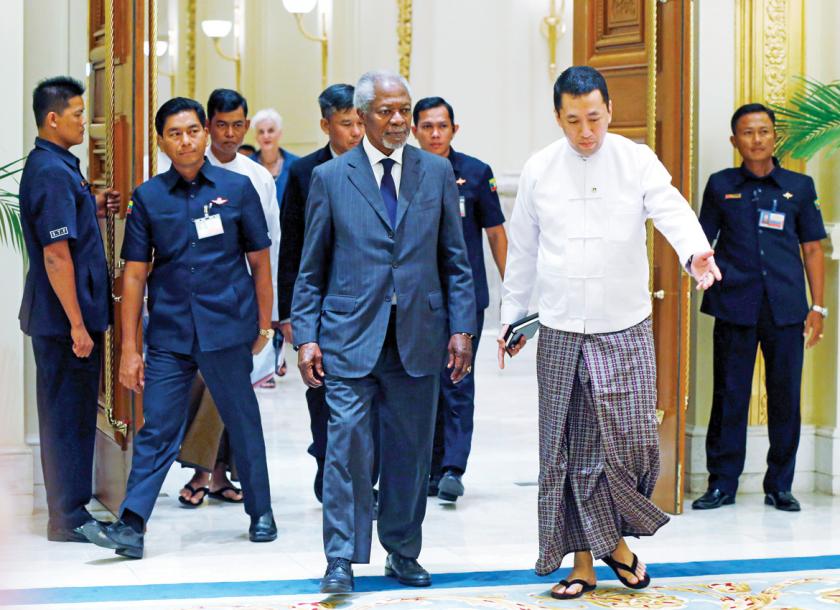
Former UN Secretary-General Kofi Annan’s Commission on Rakhine has recommended that the Myanmar government conducts a a strategic environmental assessment( SEA) and labour market assessment on Kyaukphyu SEZ
The Commission cautions that large-scale projects in Rakhine State have bred local resentment towards the central government and stresses that local communities should have a greater say in the state’s development. AN advisory commission tasked with finding solutions to the ethnic conflict in Rakhine State has recommended that the government conducts a strategic environmental assessment and labour market assessment for Kyaukphyu Special Economic Zone (SEZ). It also questioned the land acquisition activities in the area. The final report of former UN Secretary-General Kofi Annan’s commission on Rakhine issue was submitted to President U Htin Kyaw on August 23 and subsequently released. -
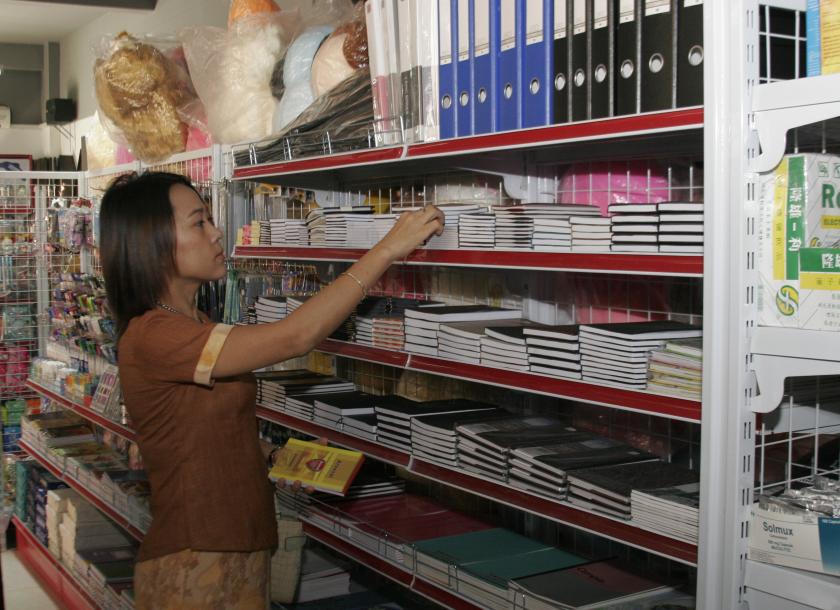
Yangon SMEs will receive smart cards to facilitate access to loans
Smart cards to help small and medium-sized enterprises (SMEs) apply for bank loans will be issued after the relevant data is collected, Yangon Chief Minister U Phyo Min Thein said at a meeting with local businesses at the Republic of the Union of Myanmar Federation of Chamber of Commerce and Industry (UMFCCI) office on August 28. THE program will cover 45 townships in Yangon Region including Cocokyun. "So far, we have collected the relevant data for SMEs in Yangon Region. After we have made the necessary ground checks, SME smart cards will be issued to those businesses. Every SME will have a smart card with its loan data uploaded," the Chief Minister said. The lack of loan data is one of the factors delaying the processing of loans and the rate at which money is extended to SMEs. -
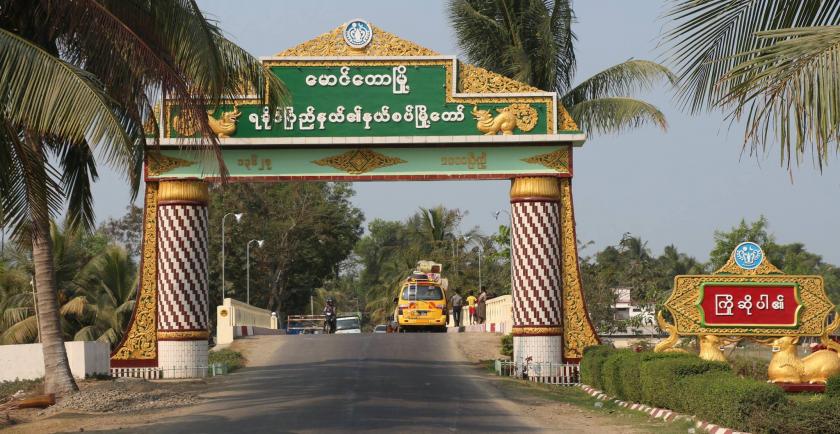
Maungdaw in Rakhine State is set to become another Special Economic Zone to boost economic development and border trade,
Rakhine State government has set in motion plans for the state’s third economic zone to boost economic development and border trade. U Kyaw Aye Thein, Rakhine State Minister for Planning and Finance, told Myanmar Business Today that the government has selected a parcel of land in Maungdaw Township, northern Ra¬khine State, as the pro¬posed location for a bor¬der economic zone. This is the state’s third planned economic zone after the Kyaukphyu Special Economic Zone and deep sea port which is still being dredged and the Ponnagyun Economic Zone near Sittwe on which bulldozers have yet to break ground. -
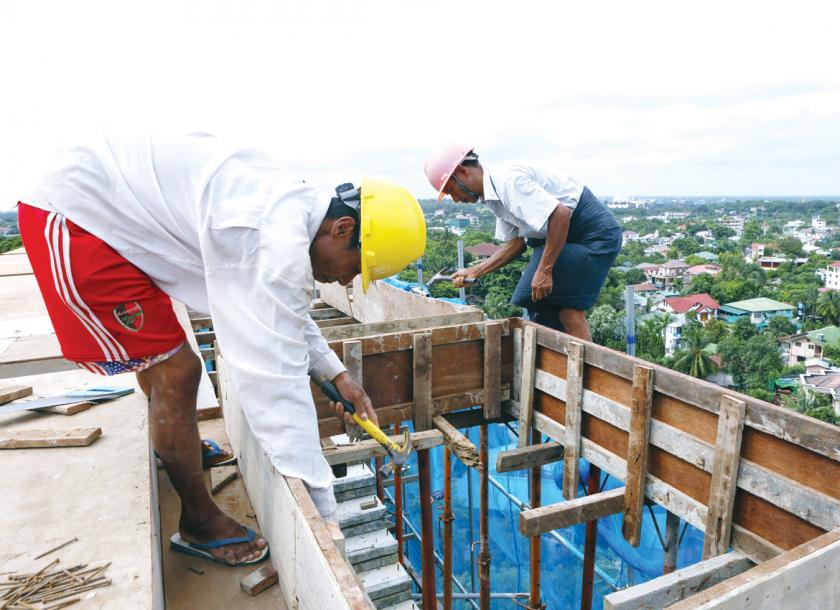
Myanmar’s economy is projected by the World Bank to grow by an average of 7 percent between 2017 and 2019
Major structural overhauls have to be carried out so the country can maximise its potential for growth. Myanmar’s economy is projected by the World Bank to grow by an average of 7 percent between 2017 and 2019. Last year, GDP rose by 6.5pc. That’s among the fastest growing economies in Asia, alongside the likes of India, China and Vietnam. On the ground in Myanmar though, things appear to be slowing down. Government spending on infrastructure and development has fallen over the past three years, while the fiscal deficit has ballooned to 4.5pc of GDP in fiscal year 2016-17 from 3.2pc in 2015-16, and 1.2pc in 2014-15. Meanwhile, foreign direct investments (FDI) have thinned, toUS$7 billion in 2016-17 from more than US$9 billion in the previous year, while the trade deficit has widened on the back of fluctuations in commodity prices, illegal trade and a weaker currency. -
More than 150 foreign companies have invested over 1.8 billion USD in Thilawa Special Economic Zone and infrastructure for Zone B is expected to be completed by mid 2018
Investment into Thilawa Special Economic Zone has toppled $1.8 billion from over 150 foreign companies, announced the Myanmar Investment Commission. Zone A, which was launched at the start of the 2014-2015 fiscal year, is 400 hectares and at 98 percent occupied. It is also the only functioning area of Thilawa Special Economic Zone’s planned 2,400-hectare facility. Japanese companies have invested $468 mil¬lion in the Thilawa SEZ making Japan the nation leading investment at 43.5 percent of total foreign investment, followed by Thailand at $134 million.
เกาะติดข่าว
Copyright © 2014 Business Information Center All Rights Reserved.







